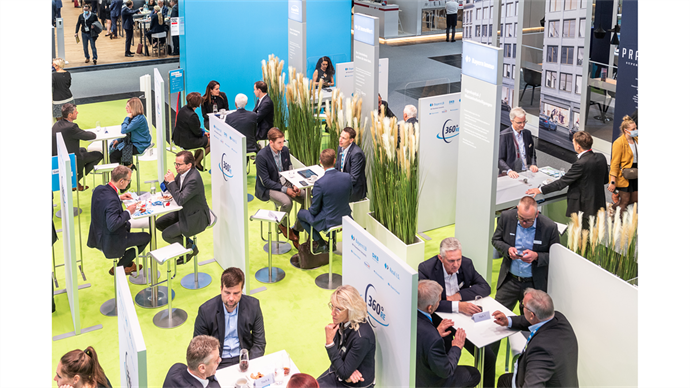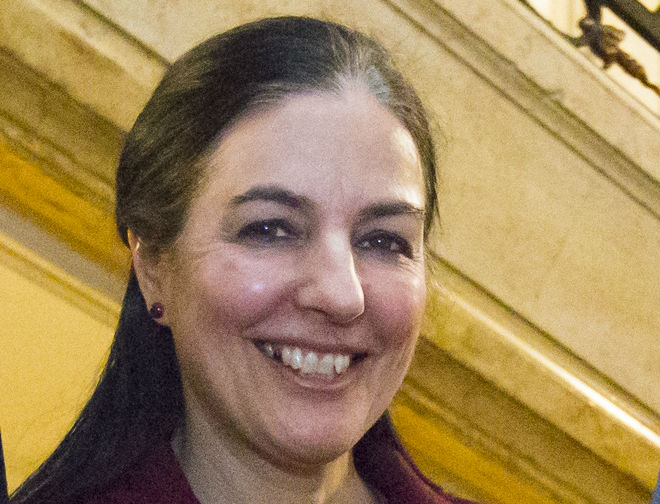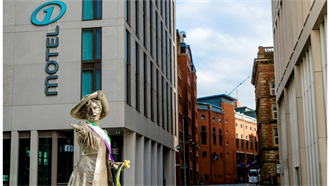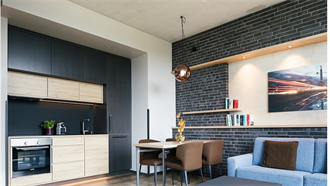Much of Expo has been about the deals, but what has been striking in the last two days is the extraordinary extent to which ESG has shot to the top of real estate’s agenda where it feels like a real and present danger.
Some of the comments around the Munich halls were not the sort that an industry accomplished at seeing half-full glasses on every counter commonly make about anything:
‘It’s a really big task...some people don’t want to admit it’ (Per Erikson, CEO of Swiss Life Asset Managers, Germany - pictured)
‘ESG is rapidly becoming one of the main things that investors have to consider in their investment committees and it will affect what they acquire and sell.’ (Emily Relf, Knight Frank’s global head of capital strategies)
‘Since the start of this year it is always in our credit analysis. We plan to develop the criteria further into an ESG rating - and we won’t finance buildings that don’t meet it.’ (Michael Kroeger, head of international real estate finance at German bank Helaba)
‘Now it is about spending more and improving assets and some managers are able to do that and some are not.’ (Simone Pozzato, fund manager of Hines Core pan-European Fund).
‘Anyone who doesn’t take it really seriously will probably go out of business.’ (Commerz Real’s CEO Henning Koch).
The backdrop is the sharper focus from big tenants on the type of buildings they want to work in post-Covid; the EU’s Sustainable Finance Disclosure Regulation which came into force in March; and slews of RFPs (request for proposals) from investors with questionnaires on managers' green credentials. It’s clearly concentrating minds and costing money.
Swiss Life AM has put 15 people working on it across its asset classes, eight of them just in real estate. ‘In total we have 70 “ambassadors” for it across the business,’ Erikson said.
Irish investor IPUT plans to spend €500 mln on its €3 bn portfolio to make it ESG-compliant, revealed Caroline McCarthy, head of fund managment. This will include its two prominent Dublin office developments, the Wilton complex which will be LinkedIn’s huge new EMEA HQ and the Tropical Fruit warehouse as well as existing buildings in its portfolio.
CBRE Investment Management aims to keep its now €6 bn pan-European core strategy at the top of the growing pile of rival open-ended European funds by converting first to sustainable debt. Last week, the entity issued a second green bond, making €1 bn in all of competitively-priced debt capital.
‘It is so interesting how much the green agenda has moved on...I’m convinced next year we’ll see vast numbers (of green bonds), and all investment managers will be doing it,’ said the giant firm’s EMEA CIO, Paul Gibson.
Brokers discussed to what extent investors will have to sell some of their offices sooner rather than later if they can’t or don’t want to invest meaningfully to raise the assets’ ESG credentials. There was talk of several private equity firms, including Starwood, considering whether there is a value add play for this type of real estate and planning to raise capital ready to pick up buildings in two to three years’ time.
Knight Frank expects that a lot of private equity money will focus on repurposing, Relf said, especially offices. The agent’s new Active capital report finds that London office buildings with an excellent ESG rating already command a premium of 11% because of their ability to attract - and retain - the best tenants. And Neil Brookes, KF’s global head of capital markets, believes that the office sector will rebound next year to be 50% of all global transactions - after a period where residential overtook offices as the top sector traded in some European countries.
Colliers International, which publishes a research report on ESG today, thinks ‘there will be a two-tier market with big corporations only going to ESG buildings’, said Richard Divall, EMEA head of cross-border capital markets.
The scale of the challenge is immense. ‘Some 96% of our global assets are in countries that have or will soon have a commitment to zero carbon,’ CBRE IM’s Gibson reflected. ‘In 2050 we expect that 85% of our buildings will still be extant - so there’s a lot to be done.’



































